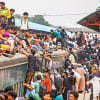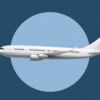International travel during COVID-19

People have now resumed international travelling, although cautiously. With the emergence of a new, more contagious variant, Omicron, however, countries are placing new restrictions on travellers, making international travelling even more uncertain, more hectic. If you are planning on going abroad, plan well and plan well ahead of time.
I have recently been to Bangladesh on a two-week trip to see my family. An earlier summer travel plan had to be cancelled because of a COVID-19 lockdown that was imposed on Bangladesh to stem infections and deaths. In our case, it cost us a cancellation fee at the time. Because change is the only constant now more than ever, bear in mind that your travel plans may have to be changed or cancelled in the fluid situation of the world we live in today.
COVID-19 TEST
You need to show proof of a negative COVID-19 test to travel internationally. Please check with your airline and also read the entry requirements of the country you are flying to before making any plans, because travel restrictions are always changing. For instance, when I was flying back to the United States in November, the requirement was that I had to get tested for COVID-19 within three calendar days before my flight. However, with the emergence of the Omicron variant, this now has been changed to no more than 'one' calendar day before you travel by air to the United States.
"I could not board my Emirates flight from JFK (John F. Kennedy International Airport) because my COVID-19 test result expired by the time I reached the airport," said Zerin Ahmed, 60, who was visiting Dhaka from New York. Ahmed had to re-book her ticket for another day and get tested for COVID-19 all over in order to fly to Dhaka.
"It is important that you calculate the 24, 48 or 72-hour window correctly, so that your COVID-19 test result does not expire before your flight," she said.
Therefore, collect the latest information on travel requirements, restrictions, and overall COVID-19 situation of the country you are travelling to before planning your trip, so you are not stranded at an international airport or in a new country.
If you are travelling from Bangladesh, remember that you have to get tested for COVID-19 at one of the government-approved hospitals or organisations. It is important to note that not all hospitals or labs in Bangladesh are authorised to perform COVID-19 tests for 'travel' purposes. A person needs to submit photocopies of his passport and air ticket to the hospital before getting tested for COVID-19.
To be on the safe time, arrive at the airport early. At Shahjalal International Airport, for instance, we had to take our COVID-19 test results to a health desk to have those verified. It is after the test results had been verified that we could walk to our airline counter. New airport protocols may now require extra time during travelling.
IN THE AIR
Once you test negative for COVID-19, you can happily start packing for your trip. When I was packing for my long journey to Dhaka, I packed enough masks to last me a week! I carried small bottles of hand sanitisers in my purse and carry-on bag. Airports are crowded places and most of the time, you will find it difficult to practice social distancing, therefore, don a mask at all times, except for eating and drinking, of course, and wash or sanitise your hands after touching high-touch surfaces. Practice good hygiene during your flight — avoid touching face, nose, and mouth, and cover your mouth while coughing or sneezing.
If you want to feel safer on the plane, carry your own anti-bacterial wipes to disinfect armrest, tray table, seat back pocket, touchscreen, and headrest.
Once you are in the air, wearing a mask is the best idea. However, if you are flying long distances, keeping a mask on at all times could be suffocating, but this is the best thing you can do to keep yourself safe. Depending upon the airline, you may also be provided with a protective kit containing gloves, sanitiser, and a mask.
For your and everyone's safety, do not crowd the plane's washroom area. Also, do not try to collect your carry-on bag from the overhead bin and rush to disembark as soon as the plane lands. Wait for announcements from the cabin crew.
I personally felt safe on the plane because every international air traveller has to test negative for COVID-19 before flying. Also, almost all modern aircrafts are equipped with HEPA (High Efficiency Particle Arrester) filters that capture more than 99 percent of the pollen, dust, dirt, bacteria, and viruses in the air.
Having said all of the above, travelling by air during COVID-19 is not 100 percent safe, no kind of travelling is. However, people are travelling once again, whether it is for business or pleasure. Therefore, if you have to travel in this pandemic, travel, but travel wisely.

 For all latest news, follow The Daily Star's Google News channel.
For all latest news, follow The Daily Star's Google News channel. 








Comments